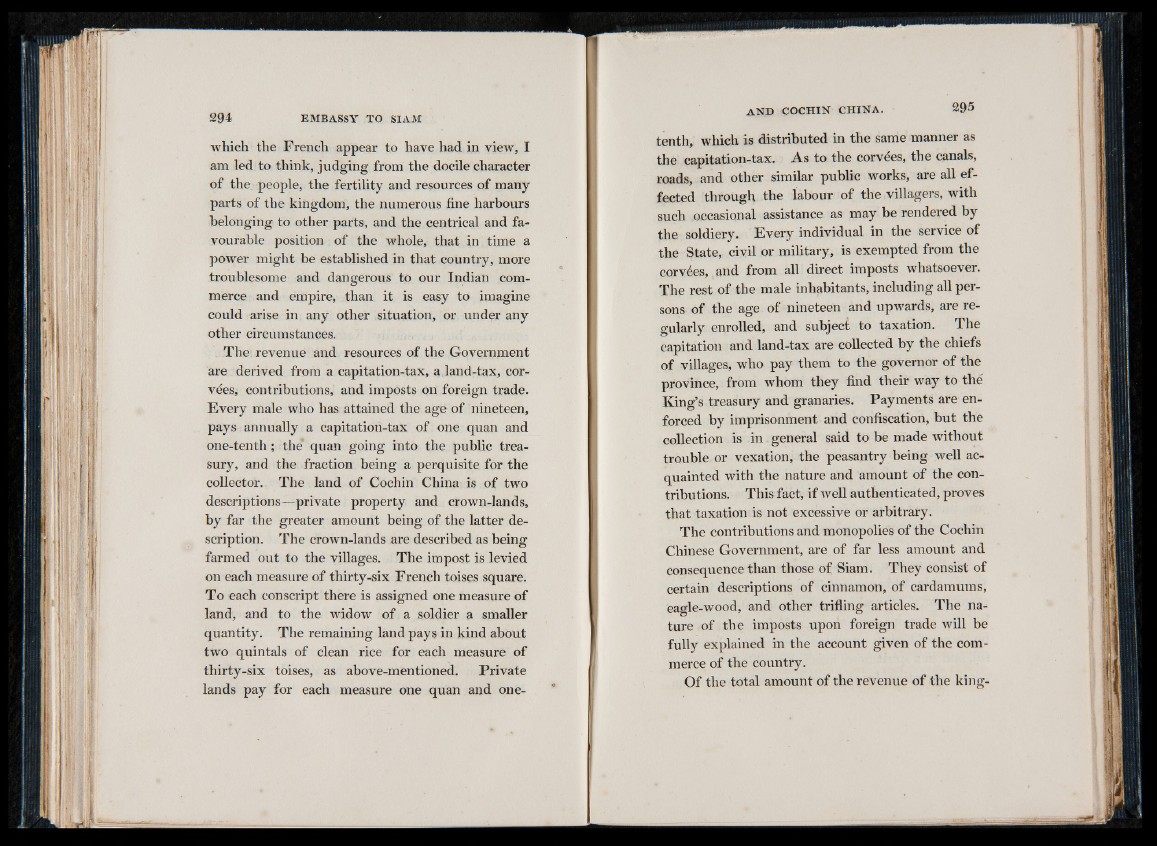
which the French appear to have had in view, I
am led to think, judging from the docile character
of the people, the fertility and resources of many
parts of the kingdom, the numerous fine harbours
belonging to other parts, and the centrical and favourable
position of the whole, that in time a
power might be established in that country, more
troublesome and dangerous to our Indian commerce
and empire, than it is easy to imagine
could arise in any other situation, or under any
other circumstances.
The revenue and resources of the Government
are derived from a capitation-tax, a land-tax, cor-
vees, contributions, and imposts on foreign trade.
Every male who has attained the age of nineteen,
pays annually a capitation-tax of one quan and
one-tenth ; the* quan going into the public treasury,
and the fraction being a perquisite for the
collector. The land of Cochin China is of two
descriptions—private property and crown-lands,
by far the greater amount being of the latter description.
The crown-lands are described as being
farmed out to the villages. The impost is levied
on each measure of thirty-six French toises square.
To each conscript there is assigned one measure of
land, and to the widow of a soldier a smaller
quantity. The remaining land pays in kind about
two quintals of clean rice for each measure of
thirty-six toises, as above-mentioned. Private
lands pay for each measure one quan and onetenth,
which is distributed in the same manner as
the capitation-tax. As to the corvées, the canals,
roads, and other similar public works, are all effected
through the labour of the villagers, with
such occasional assistance as may be rendered by
the soldiery. Every individual in the service of
the State,- civil or military, is exempted from the
corvées, and from all direct imposts whatsoever.
The rest of the male inhabitants, including all persons
of the age of nineteen and upwards, are regularly
enrolled, and subject to taxation. The
capitation and land-tax are collected by the chiefs
of villages, who pay them to the governor of the
province, from whom they find their way to thé
King’s treasury and granaries. Payments are enforced
by imprisonment and confiscation, but the
collection is in general said to be made without
trouble or vexation, the peasantry being well acquainted
with the nature and amount of the contributions.
This fact, if well authenticated, proves
that taxation is not excessive or arbitrary.
The contributions and monopolies of the Cochin
Chinese Government, are of far less amount and
consequence than those of Siam. They consist of
certain descriptions of cinnamon, of cardamums,
eagle-wood, and other trifling articles. The nature
of the imposts upon foreign trade will be
fully explained in the account given of the commerce
of the country.
Of the total amount of the revenue of the king